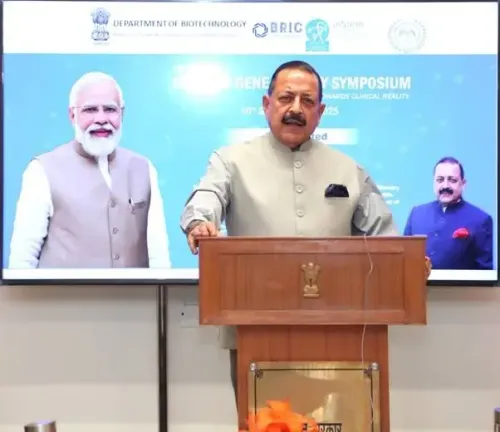Why Are Indian Professionals Reluctant to Discuss Mental Health at Work?

Synopsis
Key Takeaways
- 31% of employees fear being seen as incapable when discussing mental health.
- Nearly 30% worry about judgment from colleagues.
- About 75% hesitate to disclose mental health leave.
- 39% cite poor work-life balance as a key issue.
- 60% request flexible work options for better mental health support.
New Delhi, Oct 10 (NationPress) Indian professionals remain reluctant to engage in mental health discussions at work due to concerns about being seen as incompetent and facing judgment, as revealed by a report released on World Mental Health Day this Friday.
Every year, World Mental Health Day is celebrated on October 10 to promote awareness regarding the significance of mental health and combat the associated stigma.
The report from the job portal Naukri, based on a survey of 19,650 job seekers, indicated that 31 percent of employees are afraid to express mental health concerns due to the fear of being perceived as incapable.
Approximately 30 percent expressed worries about potential judgment from colleagues, while 21 percent feared being seen as making excuses. An additional 21 percent believed discussing these issues could hinder their professional advancement.
Almost 75 percent of Indian professionals showed reluctance to be open about taking time off for mental health reasons.
Close to half of the employees, 45 percent, stated they would simply categorize it as general sick leave. Only 28 percent felt secure enough to specify the reason.
About 20 percent preferred to avoid taking leave altogether, while 9 percent would create a different excuse entirely.
The report highlighted poor work-life balance as the primary issue (b affecting mental health at work, accounting for 39 percent of responses. This was followed by micromanaging supervisors (b 30 percent), lack of acknowledgment (b 22 percent), and anxiety over making mistakes (b 10 percent).
Remarkably, 60 percent of respondents stressed the necessity for flexible work arrangements, followed by 22 percent advocating for stress-management workshops, 10 percent requesting paid mental health days, and 9 percent calling for managerial training.
More than one in four professionals in the pharma sector identified lack of recognition as a significant detriment to their mental health. In contrast, KPO and research roles highlighted micromanagement as the primary concern (b 33 percent), while in design and hospitality fields, the stigma is more pronounced, with about 28 percent preferring to forgo leave rather than mention mental health.
Conversely, the BFSI sector displayed greater willingness, with over 30 percent open to disclosing mental health issues as the reason for leave.









